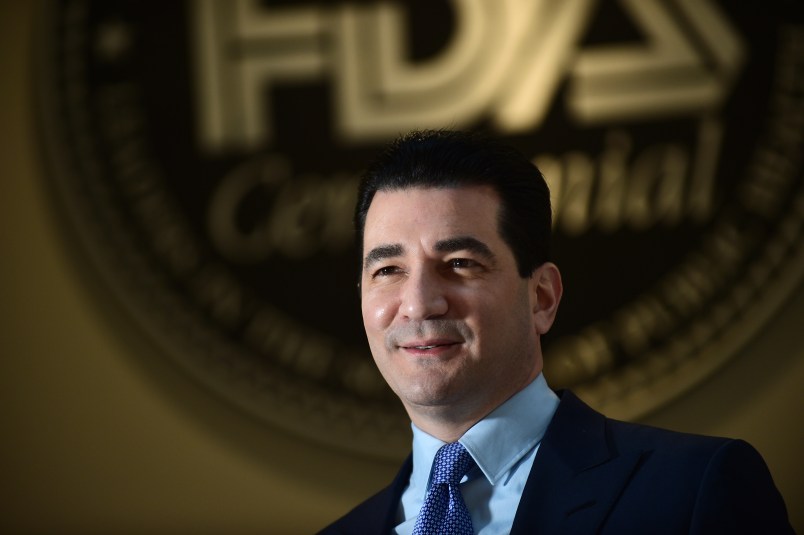WASHINGTON (AP) — Food and Drug Administration Commissioner Scott Gottlieb is stepping down after nearly two years leading the agency’s response to a host of public health challenges, including the opioid epidemic, rising drug prices and underage vaping.
Health and Human Services Secretary Alex Azar announced in a statement Tuesday that Gottlieb would leave in a month.
President Donald Trump tapped Gottlieb in 2017 to “cut red tape” at the FDA. But Gottlieb bucked expectations by pushing the agency to expand its authorities in several key ways, including an unprecedented effort to make cigarettes less addictive by requiring lower nicotine levels.
A physician and former conservative pundit, Gottlieb advanced his agenda while managing to maintain the support of the president, Republicans and key Democrats in Congress.
Still, he departs with his most sweeping plans unfinished, including the initiative to make cigarettes less addictive.
In recent months, he came under fire for not acting more quickly to address an explosion in teenage use of electronic cigarettes. Under Gottlieb, the FDA has emphasized vaping as a potential tool to wean adult smokers off traditional cigarettes. In a widely criticized move, Gottlieb delayed key regulations on those vaping devices until 2022.
Anti-smoking groups are now suing the agency to begin reviewing e-cigarettes immediately after the most recent federal data showed that 1 in 5 high school students were using e-cigarettes. While the FDA has taken steps against the vaping industry, including tightening restrictions on e-cigarette sales in convenience stores, it’s unclear whether they will be enough to reverse the trend.
Elsewhere, Gottlieb targeted drug industry tactics used to maintain sky-high prices on older drugs, calling them “shenanigans” and “deceptions.” For decades, FDA commissioners steered clear of the issue, noting that the FDA has no direct role in regulating U.S. medicine prices, which are set by drugmakers. But Gottlieb said the agency had a role to play and reshuffled its review procedures to speed up approvals of lower-cost generic drugs, with the aim of increasing competition in the marketplace.
On FDA’s more day-to-day responsibilities, Gottlieb continued a multi-decade, bipartisan shift toward faster, more streamlined product reviews for drugs and medical devices. That issue has long been the top priority for the powerful pharmaceutical and device industries, which spend millions lobbying Congress and the federal government annually to ensure speedy market access for their products.
FDA approvals for first-of-a-kind drugs and devices hit all-time highs last year.



